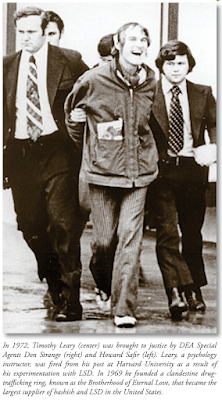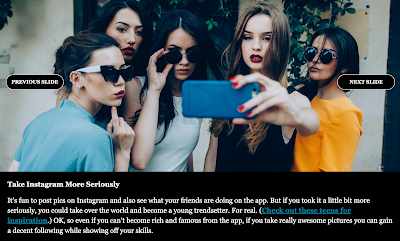Celebrating famous female cannabis connoisseurs throughout herstory to the present day. All contents copyrighted. "Bright Leaf" artwork by Jean Hanamoto, camomoto at Spoonflower.com
Monday, August 7, 2023
Celebrating Marijuana-Using Lefties on Left Handers Day
Sunday, August 6, 2023
Jeeter's Dwayne Wade Heading to NBA Hall of Fame, with Alan Iverson Inducting
Next week @dwyanewade will be inducted into the 🏀 Hall Of Fame. And to celebrate his remarkable career, we have something very special coming for you all. pic.twitter.com/D6DdbtS8NH— Jeeter (@passthejeeter) August 6, 2023
Tuesday, August 1, 2023
Tokin' Women and Others We Lost in July 2023
Angus Cloud (7/31)
Cloud, a native of Oakland, CA, was recruited into acting after being spotted on a NYC street by the director of the HBO drama Euphoria, in which played a "kindhearted" drug dealer to teenagers. At the end of season 2, Cloud's character was wounded and arrested. The coroner determined that Cloud accidentally overdosed on meth, cocaine, fentanyl and benzodiazepines.
Sunday, July 30, 2023
And Just Like That, Charlotte's Brownie Munching Leads to a Revelation
 |
| Kristin Davis enjoys a brownie in "And Just Like That" |
Unaware that she's ingested cannabis, Charlotte ends up in the hospital emergency room after feeling strange and reporting symptoms like, "I can feel the blood in my mouth." An unconcerned ER physician assures her she's not having a stroke and instead reports, "You do have a pretty significant amount of THC in your bloodstream," adding that's he's seeing the situation a lot because, "People in your age group haven't quite learned how to navigate the power of a gummy." He tells her she can go home and sleep it off.
It's true: A recent UC San Diego study of California hospital data found a 1,804% increase in cannabis-related emergency room visits among people older than 65 from 2005 to 2019. “I see patients later, and they said: ‘I used a gummy, and nothing happened.’ And they don’t know much about the doses,” study author Benjamin Han said. “So then they say: ‘I took a lot more and then, two hours later, my heart is racing — I’m so anxious I don’t know what’s going on!’ And they end up in the emergency department.” Edibles remain the main cause of cannabis overdoses for all age groups.
Saturday, July 22, 2023
Bruce Lee: How Green Was the Green Hornet?
Many, like Very Important Pothead Kareem Abdul-Jabbar, have been paying tribute to Bruce Lee on the 50th anniversary of his death. The Chinese-American martial artist and movie star smashed as many racial barriers and stereotypes as he did opponents, and another myth he smashed was that of the weak, do-nothing cannabis consumer.
According to the biography Bruce Lee: A Life by Matthew Polly, it was Steve McQueen who turned Lee onto marijuana. "It quickly became his drug of choice – Puff the Magic Dragon," Polly writes. "After a training session with one of his celebrity clients, Bruce would light a blunt and talk philosophy," listen to music and "have a ball," James Coburn recalled. "Blowing Gold was one of his favorite things."
"It was different and scary," Bruce said of his first experience getting stoned. "I was feeling pretty high when Steve gave me a cup of hot tea. As I placed the cup to my lips, it felt like a river gushing into my mouth. It was weird. Everything was so exaggerated. Even the damn noise from my slurping was so loud it sounded like splashing waves. When I got into my car and started to go, the street seemed like it was moving real fast toward me. The white centerline just flew at me and so did the telephone poles. You just noticed everything more sharply. You become aware of everything. To me it was artificial 'awareness.' But, you know, this is what we are trying to reach in martial arts, the 'awareness,' but in a more natural way."
Polly theorizes that "beyond its consciousness-raising appeal, Bruce's fondness for cannabis—at first he used marijuana and then later switched to hash—may have involved an element of self-medication. 'Never Sits Still' was a nickname and he had been hyperactive and impulsive since his childhood. Marijuana and hash seem to have served as a kind of chill pill."
DEATH AND LEGACYAfter a near fatal cerebral edema caused him to collapse on a Hong Kong movie set on May 10, 1973, Lee was examined by neurosurgeon Dr. Peter Wu. During the examination, Lee admitted that he had eaten hash immediately before the episode, and Wu advised him not to take it again. "It's harmless," Bruce scoffed. "Steve McQueen introduced me to it. Steve McQueen would not take it if there was anything dangerous about it." He refused diagnostic tests, saying he would get treated in the US.
"In 1973, Hong Kong had very little experience with marijuana," writes Polly. "It was conceived of as an evil Western hippie drug. Research since then has proven that cannabis does not cause cerebral edema or lead to death." He quotes Dr. Daniel Friedman, a neurologist at NYU Langone Medical Center. "There are no receptors for THC in the brainstem, the part of the brain that maintains breathing and heart rate," said Dr. Friedman, "which is why it is very near impossible to die directly from a THC overdose unlike heroin or barbiturates."
Friday, July 14, 2023
DEA "Celebrates" 50 Years, Pushes Social Media Addiction

One of the DEA's high-profile busts was the arrest of Dr. Timothy Leary, the Harvard psychiatrist who became an evangelist for LSD. Leary's legal challenge to the 1937 Marijuana Tax Act after being caught with pot at the Mexican border dismantled that law, but ushered in the much-worse 1971 Controlled Substances Act, which gave DEA the authority to schedule drugs based on their perceived danger, leaving cannabis in the most dangerous Schedule I category to this day.
DEA TRIES TO BE HIP IN TEEN CAMPAIGN
Saturday, July 1, 2023
Study: Warning Signs About Cannabis and Pregnancy May Have "Unintended Adverse Consequences"
A recent study published in JAMA Network Open surveyed 2063 pregnant or recently pregnant people living in US states with legalized recreational cannabis, 585 of whom reported using cannabis during their pregnancy (CUDP). Researchers from the University of California, San Francisco supported by a grant from the California Department of Cannabis Control reported that among those who used cannabis during their pregnancy, living in a state with warning signs about the use of cannabis during pregnancy was associated with beliefs that cannabis use during pregnancy was safe, and that those who used cannabis during pregnancy should not be punished. Among people who did not use cannabis before or during pregnancy, living in a warning-signs state was associated with beliefs that use was not safe, and with greater support for punishment regarding pregnant people’s cannabis use.
"Considerable questions remain as to why warning signs for substance use during pregnancy may have unintended adverse consequences," the study's authors write. "One possibility is that warning signs increase fears of punishment and thus influence pregnant people to avoid prenatal care. Another is that warning signs may lead people to believe their substance use has already irreversibly harmed their baby and thus it is too late to stop use. From the larger health communications literature, people who use cannabis could experience message fatigue and tune out or distrust information in messages."






